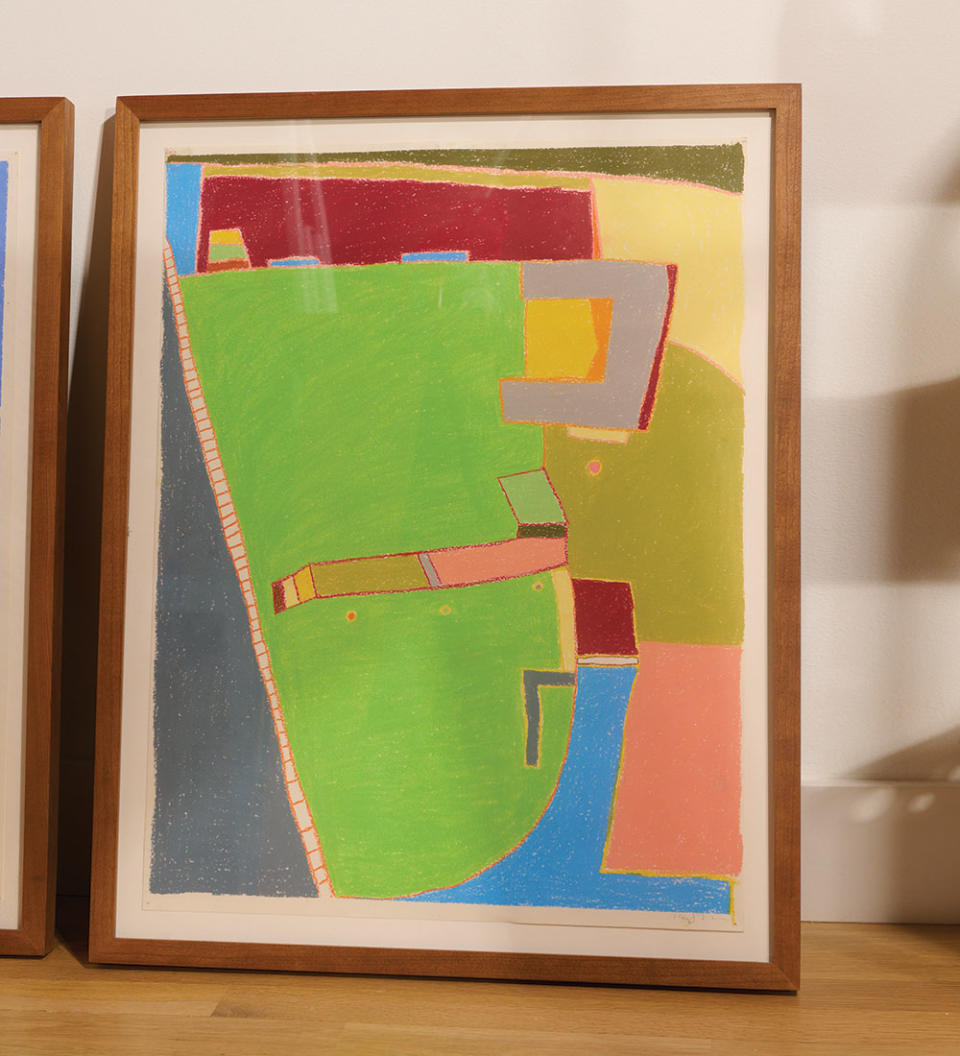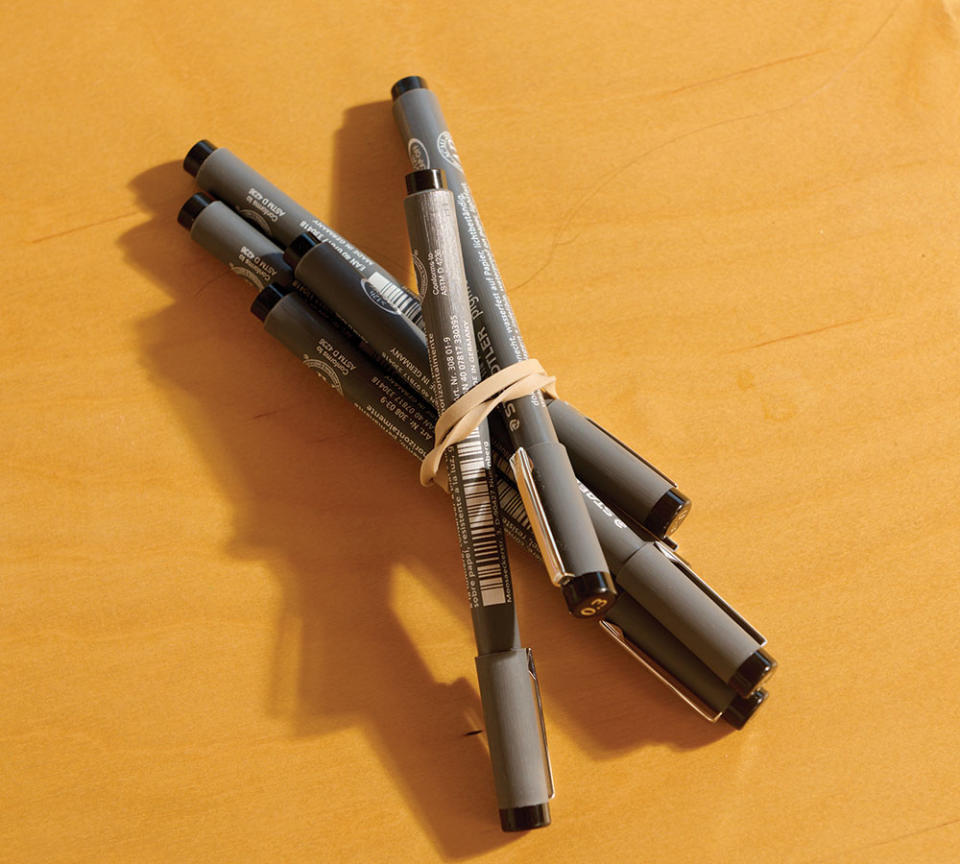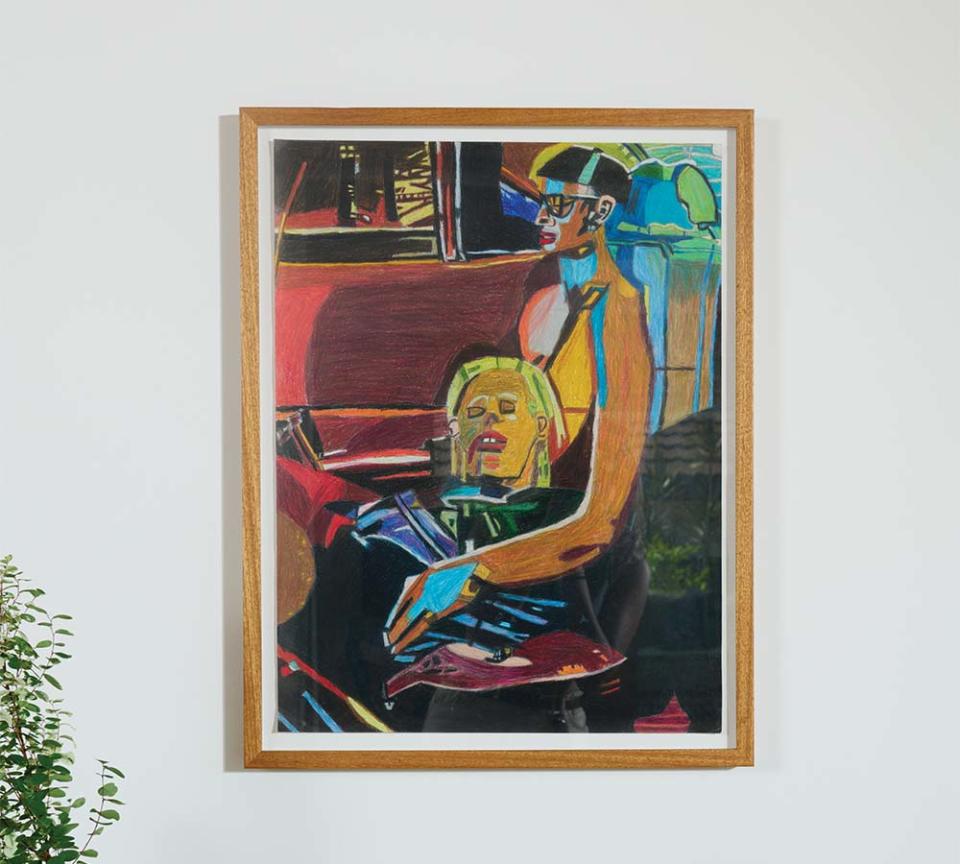Abbi Jacobson on Reimagining ‘A League of Their Own’ With Late Director Penny Marshall’s Blessing
- Oops!Something went wrong.Please try again later.
- Oops!Something went wrong.Please try again later.
- Oops!Something went wrong.Please try again later.
- Oops!Something went wrong.Please try again later.
- Oops!Something went wrong.Please try again later.

Abbi Jacobson and her A League of Their Own co-creator, Will Graham, have long shared the belief that the 1992 film does not need to be remade.
So when Jacobson and Graham’s episodic take on the Penny Marshall title drops Aug. 12 on Amazon, they are both hopeful the show, in which Jacobson also stars, feels sufficiently different.
More from The Hollywood Reporter
'She-Hulk: Attorney at Law' Head Writer Jessica Gao Is Finding the Funny in Marvel
Nikki Glaser, Feminist and 'FBoy' Whisperer, Is Channeling Her Anger on Stage
“We love those characters and that angle on this time. We’re not trying to redo Dottie and Kit,” says Jacobson, referring to the now-iconic roles played by Geena Davis and Lori Petty. “I’m in no way trying to pretend I’m Geena Davis.”
The series, for which they got the blessings of Marshall, Davis and original co-star Rosie O’Donnell (who also cameos), explores topics of sexuality and racism that were largely omitted from the original. Graham (who has a deal with Amazon) and Jacobson have spent the past half-decade researching the private lives of the women of the All-American Girls Professional Baseball League. The Broad City creator-star serves as the series’ lead, Carson, a ballplayer who discovers a whole new community after falling for a teammate.
Speaking from her Eastside L.A. home via Zoom in late July, Jacobson, 38 — who’s been dating actress Jodi Balfour (For All Mankind) for two years — opens up about the possibility of revisiting Broad City, trying her hand at directing and why she’s already tired of A League of Their Own being described as a “queer show.”
After Broad City ended, how did you think about what was next?
Broad City was an amplified version of me. So much of my personal life was Broad City, but the tone was heightened. The things I wear all the hats on — Broad City and this — I [can’t] help that [they’re] super personal. It’s the only fuel in my tank. How I experience the world, what I’m observing, how can I fold that into whatever story I’m telling? I feel a great responsibility on this show to tell these other stories that are based on real women but have a lot of me fused into it.
This isn’t a remake. Is it fair to say it’s more of an expansion of areas the movie didn’t get to?
We want to talk about stories that were overlooked. We were talking about that throw. [In the movie, a Black woman retrieves a foul ball, indirectly nodding to the league’s racial bias.] We’re not trying to tell the story of white women who got to play baseball in the 1940s — that was told. Ours is about that generation of women and what happens when that door for the All-American Girls Professional Baseball League opens, and a lot of white women and white-passing women have that opportunity. But what happens when it’s shut? What happens when Chanté Adams’ character, Max, is not allowed to try out? Max is based on three women who played in the Negro Leagues.

Both you and Will are part of the LGBTQ community. Do you think that helped the show get made?
I think it helps us tell the stories we’re telling on the show. I don’t know if that necessarily helped us sell the show. I don’t think that that’s why I would want to sell anything. But I also feel like if two queer showrunners come in telling you that there’s a really important story that’s been overlooked about queer history, then maybe that’s a more trustworthy reason to make it.
How concerned are you about leaning so heavily into LGBTQ themes at such a perilous time for the LGBTQ community?
It’s never not been perilous. But in the past couple of months, what the fuck is happening?! I’m happy that this is going out into the world right now because I’m angry, and I think showing more representation in this way is more important than ever. The fear is that people will see the poster and think we’re doing a woke version of A League of Their Own, when in fact it’s more truthful to what was happening at the time.
You and Will met with Penny Marshall before she died. What questions did you have for her?
It was a 15- to 20-minute call. She was really sick; it was right before she passed away. We felt so lucky that we got a chance to get her blessing. We got into the scene with the foul ball and the Black woman who chucks it back. Penny said she felt like she couldn’t tell all the stories in the time allotted and she wanted to nod to the other parts that were important, such as that throw. We have more real estate to do that. No one is queer in the movie, and yet it’s an iconic queer film. It’s just in the air, and I don’t think that was necessarily intentional. That’s the vibe and the way you feel watching the film, if you happen to feel and look like a little bit of an outsider. And a lot of queer people feel that way. We talked about the queerness. Penny was telling this story in 1992, and that was a very different time [in terms of] what stories were accepted for a huge studio movie. If it’s tricky for us to do it now, it was for her then.

Is it tricky now?
When the show keeps being referred to [with the descriptor] “queer” before it all the time, it’s not bad, but we’re still in a moment when we are labeling things as a “queer show.” It’s like being called “a female comedian.” It’s sectioned off until it’s just called a show or a comedian.
We talk a lot about who can or should tell what story. Do you think the movie would be greenlit today considering where the industry is with diversity? It was written by two straight white guys.
I don’t think it should be without acknowledging part of what that [Black woman’s] throw did for us. It’s not explicitly said in the film that she wasn’t allowed to try out. There are flaws within the original league, just like any institution. As a kid, I processed a little bit of that: “She’s so good and she can’t play.” It’s not [crystal clear] what the reality is there. If that movie were pitched now, it should include the stories we’re doing, which is why we’re doing it.
The legendary Maybelle Blair — who just came out at age 95 — is among the 20 or so former AAGPBL players you consulted. What stories about the league and its players were important for them to see reflected in the show?
They shared what being in the league in that time meant to them. With Maybelle, we didn’t talk about the queerness for a while. We broached the topic at a dive bar she loves that she took us to for dinner. I said that it felt like there were some parts missing from the movie relating to queer women. I told her that Will and I were queer. She took a deep breath and said, “I’ve never really said this, but I’m queer.” That was the first time outside of her small community that she’d said that. That was so early in our development cycle, and from that point on, we became close and shared a lot with each other.

When it was first reported in early 2018 that you and Will were developing A League of Their Own, there were no plans for you to star in it. What changed?
We were always writing this character in my voice with me in mind. It’s tricky because I wasn’t sure when we were ending Broad City. This was and is a terrifying thing to embark on. I needed to wait until I loved what we were making.
In this era of reboots, any interest in revisiting Broad City?
Broad City ended in spring 2019. That was not that long ago, but it feels like 20 years ago! Ilana [Glazer, her co-creator and co-star] and I always talk about the fact that we would only do it in a way that makes sense for us. When it gets to a point where we can’t stand not having done something together is when we’ll do it. I can’t imagine not doing something with Ilana again.
So, what’s next for you?
We hope we get to do another season [of League]. The next thing I’m excited about, after I go on vacation, is a short story I’m optioning by Lorrie Moore that I want to write as a film and have it be my first foray into film directing. It’s tonally different from anything I’ve done before.
Interview edited for length and clarity.
This story first appeared in the Aug. 3 issue of The Hollywood Reporter magazine. Click here to subscribe.
Best of The Hollywood Reporter

